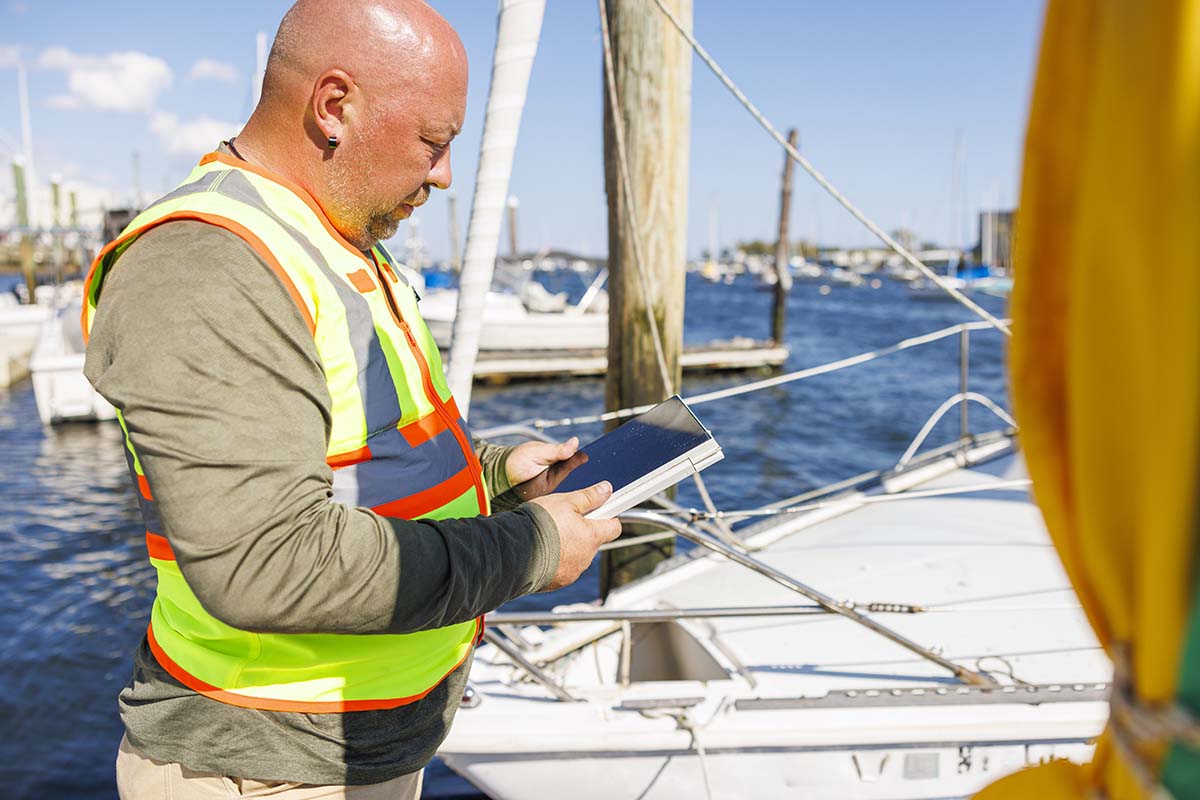
Factor in Insurance Costs Before You Buy a Marina
Published on April 1, 2025Those looking to buy a marina have many considerations when finding the right property and the best deal. While location and reputation are obvious, digging deeper into the operations and administration is a crucial part of the review.
One area that cannot be overlooked is insurance. The cost of insurance is a necessary and often pricey part of running a marina, so taking a look at what coverage is in place and what might be missing should be a critical piece of due diligence.
Factors Impacting Price
Marinas sit on the water, making them inherently risky as seen through the eyes of insurers. They are susceptible to flooding, high winds, water pollution and drownings. They often sit as the final frontier through which all upland contaminants travel as they wash down toward the sea. Marinas store high-priced property that they may shuffle through the yard on a forklift. For an insurance agent, a marina is a place where many things can go wrong, so coverage comes at a high cost, and in some cases, is unavailable.
Lori Sousa, president of SeaLand Insurance Corporation in Florida, explained that the insurance market is global. Each earthquake, tsunami or other disaster in any part of the world impacts the cost of insurance. As natural disasters become more frequent, insurance prices are going up, especially for property coverage.
“I haven’t seen the inability of companies to write a full marina, but I am seeing some exposure is challenging,” she said. “Covered docks, for instance, are becoming very hard to cover,” she said. “However, the cost for marine liability has only increased by about 3 to 8% over the past few years. The steep increases have come from property insurance, which is dependent on where you are located.”
Coverage Can Vary
There is no one-size-fits-all insurance coverage since the variations of what a marina entails are wide. Sousa said the most important thing a potential marina buyer should do is find a marine insurance agent with a history of working with marinas. “Too many people dabble in marine insurance, and they just don’t know what they’re doing,” she said. “An agent that does home insurance may offer to just tack on a marina, but you won’t end up with the right type of coverage.”
Basic coverage for a marina should include:
- Marina operators’ legal liability to cover boats in the marina’s care
- Jones Act and worker’s compensation to cover employees both on and off the waterMarine general liability for slips and falls
- Protection and Indemnity to cover on-water liability for anything or anyone that’s hit while on the water
- Property and tools and equipment to cover all personal property
- Auto coverage for marina vehicles and trailers, which is often neglected
Sousa said most marinas carry these policies, but there are additional coverages she recommends. “Marinas leave off dock coverage because it’s expensive,” she said. “In some cases, the owner can absorb that risk. Maybe they can rebuild their own docks, but it’s a high risk to leave this out.”
For Sousa, a no-brainer is to carry pollution insurance, whether or not the facility meets the threshold of oil storage to warrant a government oil spill prevention plan. “Any oil that hits the ground can leak into the water or ground and open up liability,” she said.
She also recommends coverage for losses stemming from crime, lost income due to unexpected closures and employment practices that will cover legal costs if there is a dispute with an employee. Finally, she emphasizes that, today, adding cyber coverage for repair and recovery from cyberattacks and data breaches should be essential.
Be Diligent
Potential marina buyers should ask to review the existing insurance policy of any property they are considering. They should have their attorney or insurance broker look at the policy to ensure current coverage is adequate and highlight additional areas the buyer should consider and how that will impact operating expenses. “I don’t suggest taking over a policy without scrutiny.
Have a marine insurance professional visit the facility and provide a quote instead,” she said. “Insurance has changed a lot over the past 10 years. It’s not as easy as it used to be, which makes finding an insurance partner that much more important.”
Ask other marinas for recommendations and ask a potential insurer for references. State trade associations can also assist in finding a qualified broker. “If a broker can’t bother to visit your facility, they shouldn’t write your policy. They can’t understand the business if they don’t see it,” Sousa cautions.
“Do your homework and find an educated marine insurance agent to ensure any marina you plan to purchase can be covered adequately at a cost you can live with.”
| Categories | |
| Tags |






